- Home
- Getting Started
-
Treatments
-
Medical Grade Skin Treatments
- Medical Microneedling
- Peels
- IPL Treatments
- Tribella
- Nano-Frac
- Diamond Polar
Skin & Hair Rejuvenation
- LED Light Therapy
- Menopause Management Plans
- PMAC Prescription Skincare Service
- Hair Restore Regimes
Tattoo Management
- Tattoo Removal Management
Non Surgical Face and Neck Tightening
- Ultherapy PRIME®
-
- Shop
- About Us
- Contact Us
Dermaplaning… yay or nay?
Dermaplaning has been a trending treatment recently within the beauty industry and on social media. Performed by beauty therapists, the treatment is designed to remove unwanted vellus hair or “peach fuzz” and to exfoliate skin cells from the skin's surface. Make-up artists will sometimes recommend it to achieve a smoother finish to your make-up. During the treatment, therapists will use a scalpel to scrape off the top layer of skin and, with it, vellus hair (kind of like shaving).
The Results?
You will receive a very smooth-to-touch skin surface immediately after the treatment. However, there may be some long-term side effects that are worth considering before deciding if this treatment is right for you.
The Risks?
Dermaplaning treatments rely solely on the skin therapist’s technique to perform the treatment correctly. If the therapist tilts the blade at an incorrect angle, they can easily cut the skin. Skin is never completely bump-free, so when a scalpel blade passes over bumps, it can also nick the surface and cause a small wound increasing the risk of bacteria entering and causing infection.The depth of the exfoliation is unregulated as it depends on the pressure and angle used by the skin therapist. Excessive trans epidermal water loss (TEWL) is also a risk due to the removal of the barrier layer of the skin, causing dehydration. Dermaplaning over active acne/problematic skin can cause the bacteria to spread and increase acne lesions. The removal of the skin barrier will also increase the risk of breakouts. Some people experience skin irritation and sensitivity after the treatment also due to skin barrier removal. If you already have sensitised skin or sunburn, this may increase side effects. People on Accutane or Isotretinoin are also contraindicated to these treatments due to sensitivity.
Dermaplaning vellus hair cuts the hair off at the skin surface, which can leave the hair to grow back sharp. For some people, this will feel like shaving stubble after only a few days. There are also risks of ingrown hairs as the hair may continue to grow at a curved angle under the skin, causing irritation.
In our experience, most people that come into our Port Macquarie and Kempsey clinics are looking to solve some of the above skin issues, so we would not recommend dermaplaning due to its potential to aggravate these skin issues. Unfortunately, our doctors team have had to treat widespread inflammatory reactions from patients who have had dermaplaning at other clinics, so we have become a bit wary about the potential benefits vs costs!
What can I do to get the results I want instead?
Chemical peelsUsing AHA’s and BHA’s to exfoliate the skin is a much safer and more effective way to smooth and hydrate the skin, leaving a flawless complexion. Chemical peels gently and effectively break the bonds that hold the surface in place, allowing a safer and more natural exfoliation without unnecessary damage or abrasion.
We understand how overwhelming the internet can be when it comes to beauty. If you’d like to explore safe and effective methods to achieving beautiful skin, speak to one of our qualified dermal therapists at the clinic. We’d love to help.
Get Started




